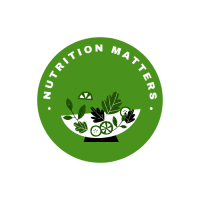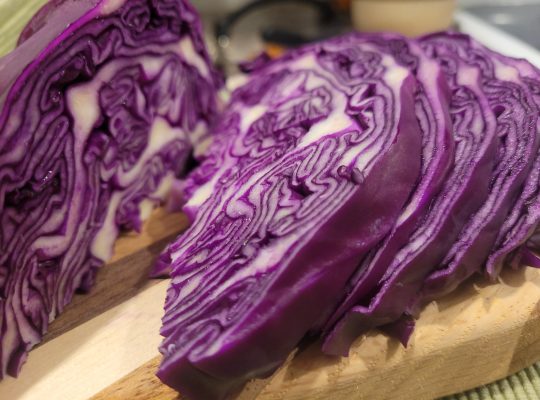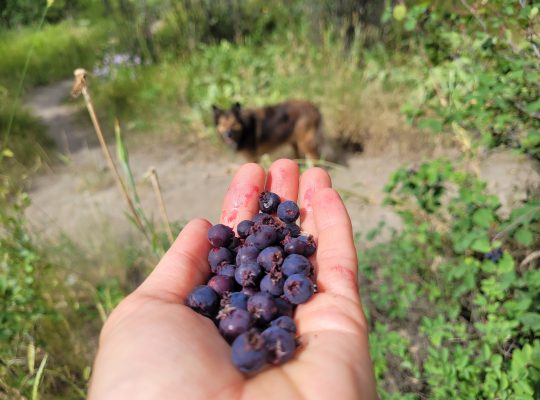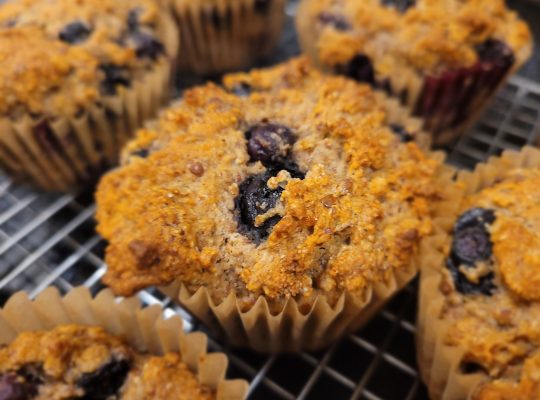Every summer-end/fall I buy grapes that remind me of my childhood. Coronation grapes to be precise, though we had some green ones that tasted similar, minus the tang that comes with the purple skin. My family made wine from the many grapes that grew on the property, but before they were picked for that, I’d make sure to have my fill: upon returning from school in mid-afternoon, I’d take the stepladder, prop it carefully under the large grapevine canopy and eat (one too many). They were absolutely delicious!
Beautiful memories and traditions = undeniable
Wine-making is beyond fascinating, from crushing the grapes (stems too), to then squeezing the juice using an old wooden press, to checking for the carbon dioxide bubbles in the convoluted glass pipes each wine barrel was equipped with. As a kid, I loved everything about it – the fragrance of ripe grapes, the chill of fall evenings and the hustle and bustle of everyone working together, laughing and then enjoying well-earned late dinners after each stage was completed. You can say I grew up with a romanticized view of wine consumption, which is true to a certain extent. I still think there is a certain charm attached to enjoying a small glass of exquisite wine, but as far the romanticized view goes… Some things have changed because of what I now know about alcohol.
But now for the other side of the coin
A disclaimer is in order: I know that some of what I am about to say below will not have me win any popularity contest, but hey, in the interest of science and long-term health as we age, which is my scope, here we go.
First of all, alcohol in itself is a toxic substance and has been classified as a cancer-causing substance (it is also both water- and fat-soluble, which means it crosses the blood-brain barrier having direct access to brain tissue). Then there is acetaldehyde, one of the compounds that is produced when alcohol is metabolized in our bodies. Also known to induce cancer and a confirmed neurotoxic. Yikes! (Of course, one could argue that ‘the dose makes the poison’, which may be true in this case too, but there are so many other factors that come into play, one being genetic predisposition to cancer.)
And there’s more yet
Acetaldehyde increases both inflammation and oxidation, driving up the production of free radicals which are these ‘rebel’ molecules that can cause much damage. They are naturally produced in our bodies (and dismantled too through protective mechanisms) but certain substances, such as alcohol and its metabolites, can drive up the numbers, increasing the risk of more cellular damage (and cell death eventually).
A 2017 review concluded that consuming up to 6g of alcohol per week comes with the lowest risk of developing Alzheimer’s disease in older adults. An earlier large study (2014) on midlife men and women concluded that the risk of cognitive decline goes up when men consume around 36g per day (that’s 2-3 drinks) and for women the risk amount was set at 19g per day (1-2 drinks).
Does the amount matter?
Okay, but that’s when there’s quite a bit of drinking, right? Yes and no. The most damning study recently published, suggests that light to moderate drinking (1-2 drinks a day) on a regular basis can cause brain shrinkage. That’s no small thing, considering that all regions of the brain were affected. And also considering that our brains go through some physiological shrinkage as we age (hence the recommendation to keep learning and being social), so adding anything on top is not the way to go.
All things considered…
It comes down to choice, and informed choices are the best. Some people are willing to eliminate alcohol altogether, others are more on the side of sticking with the occasional toast.
Yes, there are people in their 80s and 90s who still enjoy the occasional glass with friends and family. Things appear slightly different in the context of social interactions, which is an important detail. So to be fair: that occasional small glass of wine will likely not have the deleterious effects listed above, but it’s not just the effects on brain health, cognition and executive function.
Alcohol disrupts sleep, affects balance hence the risk of falling and resulting injuries, and it increases the risk of various cancers (mouth, throat, esophagus, stomach, pancreas, colorectal and breast cancer). Last but not least, alcohol is also contributing calories to one’s diet (dose dependent of course), which is why people who are concerned about aging-associated weight gain are advised to reduce the amount of alcohol.
As for the how-to part of still enjoying a glass here and there but doing it better, some suggestions:
- Have a proper meal prior to consuming alcoholic beverages,
- Drink enough water to counteract the diuretic effect (at least 1 glass of water for each serving.
- Consider tasting the non-alcoholic offerings, you may be surprised.







